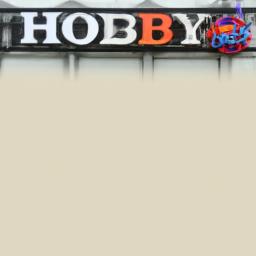Discover the reasons why Hobby Lobby, a popular arts and crafts store, doesn’t sell Halloween decorations. Explore the controversy and underlying reasons in this article.
Are you a Halloween enthusiast who enjoys decorating your home with spooky decor? If so, you may have noticed that Hobby Lobby doesn’t sell Halloween decorations. This has sparked controversy and raised questions about the reasons behind their decision. In this article, we will explore why Hobby Lobby doesn’t sell Halloween decorations.
Hobby Lobby is a well-known arts and crafts store that offers a wide range of products, including seasonal decor. However, they have made the decision not to sell Halloween decorations, which has caused confusion among their customers. Some people speculate that it is because the holiday is associated with evil and darkness. Others believe that it is due to their religious beliefs.
Regardless of the reasoning behind their decision, it has sparked a debate about whether a company should impose its religious beliefs on its customers. In this article, we will delve into the underlying reasons for Hobby Lobby’s stance on Halloween decorations and examine the potential implications of their decision.
Join me as we explore the controversy surrounding Hobby Lobby’s decision not to sell Halloween decorations and the reasons behind it.
Company Values and Religious Beliefs
Hobby Lobby’s Values
Hobby Lobby is a Christian-owned and operated company that is closed on Sundays to allow their employees to attend worship services. Their mission statement is “Honoring the Lord in all we do by operating our company in a manner consistent with biblical principles.” They are known for incorporating Bible verses and Christian messages into their products and advertising.
Hobby Lobby’s Stance on Halloween
Hobby Lobby’s decision not to sell Halloween decorations is rooted in their religious beliefs. They believe that Halloween glorifies darkness, death, and evil, which conflicts with their values as a Christian company. They have stated that they do not want to promote or celebrate a holiday that goes against their beliefs.
Other Religious Beliefs
It’s worth noting that Hobby Lobby is not the only company to take a stance against Halloween. Some Jehovah’s Witnesses do not celebrate Halloween because they believe it promotes pagan beliefs. Similarly, some Muslim and Jewish communities do not celebrate Halloween because it conflicts with their religious beliefs.
However, it’s important to recognize that many Christians do celebrate Halloween without any conflict with their faith. The holiday has evolved over time to become a secular celebration of costumes, candy, and fun. While Hobby Lobby has the right to make their own decisions about what products they sell, it’s important to consider the potential impact of imposing their religious beliefs on their customers.
Business Strategy and Consumer Demand
Hobby Lobby’s Business Strategy
Hobby Lobby is a privately owned company that operates on Christian principles. The company’s founder, David Green, has stated that he started the business with the intention of “honoring the Lord through all we do.” This includes the products they sell and the way they conduct their business.
Hobby Lobby’s business strategy is based on providing high-quality products that align with their religious beliefs. They have made the decision not to sell Halloween decorations due to their belief that the holiday glorifies evil and darkness, which goes against their values.
Potential Loss of Revenue
While it may seem counterintuitive for a business to turn down revenue opportunities, Hobby Lobby has made the decision to prioritize their beliefs over profit. However, this decision does come with potential consequences.
According to the National Retail Federation, Americans spend an average of $9 billion on Halloween decorations each year. By choosing not to sell these products, Hobby Lobby is missing out on a significant portion of potential revenue.
However, Hobby Lobby has found success in other areas, and their decision not to sell Halloween decorations has not had a significant impact on their overall business. They have seen steady growth in recent years, and their customer base remains loyal to their brand.
Consumer Demand
While there is a significant demand for Halloween decorations, Hobby Lobby has made the decision to focus on other seasonal products that align with their religious beliefs. This includes products for Christmas, Easter, and other holidays that celebrate their faith.
Hobby Lobby’s customer base also includes many Christians who share their values. By catering to this demographic, they are able to maintain a loyal customer base and continue to grow their business.
In conclusion, Hobby Lobby’s decision not to sell Halloween decorations is based on their business strategy and religious beliefs. While they may be missing out on potential revenue, they have found success in other areas and remain committed to their values.
Ethical Considerations and Controversy
Imposing Religious Beliefs on Customers
One of the main ethical considerations surrounding Hobby Lobby’s decision not to sell Halloween decorations is the issue of imposing religious beliefs on customers. As a Christian-owned company, Hobby Lobby’s religious beliefs are an integral part of their business strategy. However, the decision not to sell Halloween decorations has caused controversy and raised questions about whether a company should impose its religious beliefs on its customers.
Some argue that Hobby Lobby has the right to run their business according to their religious beliefs. Others argue that it is unfair to impose their beliefs on customers who may not share the same values. This raises important questions about the balance between a company’s religious beliefs and their responsibility to serve all customers equally.
Backlash and Controversy
Hobby Lobby’s decision not to sell Halloween decorations has sparked controversy and received significant backlash from the public. Many customers have expressed disappointment and frustration with the company’s stance on the holiday. Some have even called for a boycott of the store.
The controversy surrounding Hobby Lobby’s decision has also raised questions about how companies should approach issues related to religious beliefs and customer inclusivity. It has highlighted the importance of considering the impact of business decisions on all customers and the potential consequences of imposing religious beliefs on a diverse customer base.
Arguments for and Against Hobby Lobby’s Decision
There are several arguments for and against Hobby Lobby’s decision not to sell Halloween decorations. Those in favor of the decision argue that it is a reflection of the company’s religious values and beliefs. They argue that it is important for companies to stand by their values and not compromise their beliefs for financial gain.
Others argue that the decision is discriminatory and exclusionary. They argue that a company should not impose their religious beliefs on customers and that it is unfair to exclude those who celebrate Halloween from accessing seasonal decor.
The debate surrounding Hobby Lobby’s decision highlights the complex ethical considerations that arise when a company’s religious beliefs clash with customer inclusivity.
Alternatives and Competition
Alternative Options for Hobby Lobby
While Hobby Lobby has made the decision not to sell Halloween decorations, there are alternative options they could consider. One solution is to sell non-religious Halloween decorations that don’t conflict with their religious beliefs. This would allow them to cater to the demand for Halloween decorations while maintaining their values and beliefs.
Another alternative option for Hobby Lobby is to focus on other seasonal decorations. They could expand their selection of fall-themed decor, such as pumpkins, leaves, and scarecrows. This would cater to customers who enjoy decorating for the fall season but don’t necessarily celebrate Halloween.
Competition Analysis
Hobby Lobby isn’t the only arts and crafts store in the market, and their decision not to sell Halloween decorations could have an impact on their competition. Other stores, such as Michaels and Joann, sell a wide range of Halloween decorations, including both religious and non-religious options.
By not offering Halloween decorations, Hobby Lobby could potentially lose customers to their competitors who do. This could have a significant impact on their market share and revenue, especially during the holiday season when sales typically increase.
Potential Consequences
The decision not to sell Halloween decorations has already sparked controversy and raised questions about whether a company should impose its religious beliefs on customers. By not offering Halloween decorations, Hobby Lobby could risk alienating customers who do celebrate the holiday or who don’t agree with their stance.
Furthermore, their decision could impact their reputation and brand image. Customers may view Hobby Lobby as a store that is not inclusive or accommodating to all customers, which could have long-term consequences on their business.
In conclusion, Hobby Lobby has alternative options to consider and should analyze the potential impact of their decision on their competition and market share. It’s important for them to consider the consequences of not offering Halloween decorations and to find a balance between their values and customer demand.
Conclusion
In conclusion, Hobby Lobby’s decision not to sell Halloween decorations is rooted in their religious beliefs and business strategy. As a Christian-owned company, they prioritize their values over potential profits. However, their decision has received criticism for imposing their beliefs on customers and limiting their product offerings.
While there are alternative options for consumers to purchase Halloween decorations, the absence of such products at Hobby Lobby may impact their market share. Additionally, other arts and crafts stores have taken a different approach, offering a variety of Halloween decor options.
As we have explored the reasons behind Hobby Lobby’s decision, it is essential to consider the ethical implications of a company imposing their religious beliefs on customers. Ultimately, consumers have the power to choose where to shop, and businesses must balance their values with customer demand.
Thank you for joining me in this discussion about the controversy surrounding Hobby Lobby’s decision not to sell Halloween decorations. Remember to visit Decor Ideas Blog for more articles on home decor and seasonal trends.

